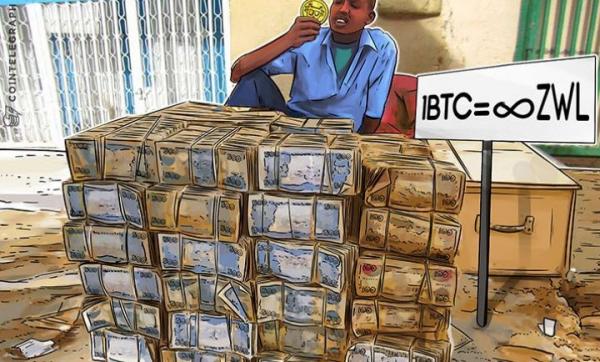Those awaiting cash transfers at a bank may wait a month to be cleared and, even then, the transfer may be refused.
The Standard, Zimbabwe’s leading Sunday newspaper, ran an article at the time entitled, “Black market thrives, as banks run dry.”
Some highlights from that article:
HARARE’S Road Port has become the unofficial bank of last resort, never short of cash, no queues and a multicurrency platform. The money market at this busy bus terminus now plays the role that the formal banking sector has failed. It is effectively making a mockery of the Reserve Bank of Zimbabwe (RBZ).
This points to the nature of black markets. They thrive based upon fulfilling an existing need, not upon government control. They therefore replace whatever services the official market fails to provide.
“Top government officials, supermarket owners and service stations were behind the thriving black market, which is never short of cash.”
And now it appears many Zimbabweans have found an alternate way to store/transfer wealth away from Mugabe’s prying (and confiscatory) eyes.
In September we noted the hyperbitcoinization occurring in Zimbabwe. In October, Zimbabwe demand started to impact the global price of the cryptocurrency, and two weeks ago we noted the doubling of the price of Bitcoin in Zimbabwe as uncertainty about the nation’s stability sent citizens into a decentralized currency that was out of Mugabe’s reach.
image courtesy of CoinTelegraph
Now, after the military coup confirms the average joe’s fears, Bitcoin is trading at over $13,000 on Zimbabwe exchange Golix – a premium of over 80% over the USD exchange price as demand surged.
And the order book is full…
Bloomberg reports that demand for bitcoin in Zimbabwe has surged amid a shortage of hard currency.
Golix processed more than $1 million of transactions in the past 30 days, compared with turnover of $100,000 for the whole of 2016, according to data on the exchange’s website.
Zimbabwe doesn’t have its own currency, with the government adopting the U.S. dollar and South African rand, among others, as legal tender in 2009 after hyperinflation rendered the local dollar worthless.
According to a local trader, bitcoin isn’t just being bought by individuals, but by businesses with bills to pay.
Bitcoin, as every bitcoiner would expect, is helping people in the country survive times of economic uncertainty, as Zimbabwe has been embroiled in a crisis for years.
* * *
As CoinTelegraph noted previously, Zimbabwe is beginning to act like an interesting case study for what happens when a country begins to collapse around its monetary system – it is also being witnessed in Venezuela.
Moving money out of Zimbabwe is starting to become impossible, and as people try and flee monetarily out of the crumbling state, they are finding refuge in Bitcoin.
Soon, banks in Zimbabwe have stated that Visa debit cards would no longer be usable for international payments without prior arrangements and pre-funding with hard currency.
“You will be required to make prior limit arrangements with the bank,” Stanbic said in a message to depositors last week.
Econet Wireless has also stopped foreign payments on its MasterCard linked EcoCash mobile money debit card.
Bitcoin as a refuge
Because of the decentralized nature of Bitcoin, there is no impact on it from this political upheaval, in fact, it is only benefiting from it. The Bitcoin premium of almost 100 percent is not because of the political issues, rather the high demand surrounding worry of collapse.
Bitcoin again shows its potential and power when the banking system again shows its potential for mass collapse and hysteria.
Source Article from http://feedproxy.google.com/~r/blacklistednews/hKxa/~3/b1m2qds36TE/M.html
 RSS Feed
RSS Feed















 November 16th, 2017
November 16th, 2017  Awake Goy
Awake Goy 



 Posted in
Posted in  Tags:
Tags: 













